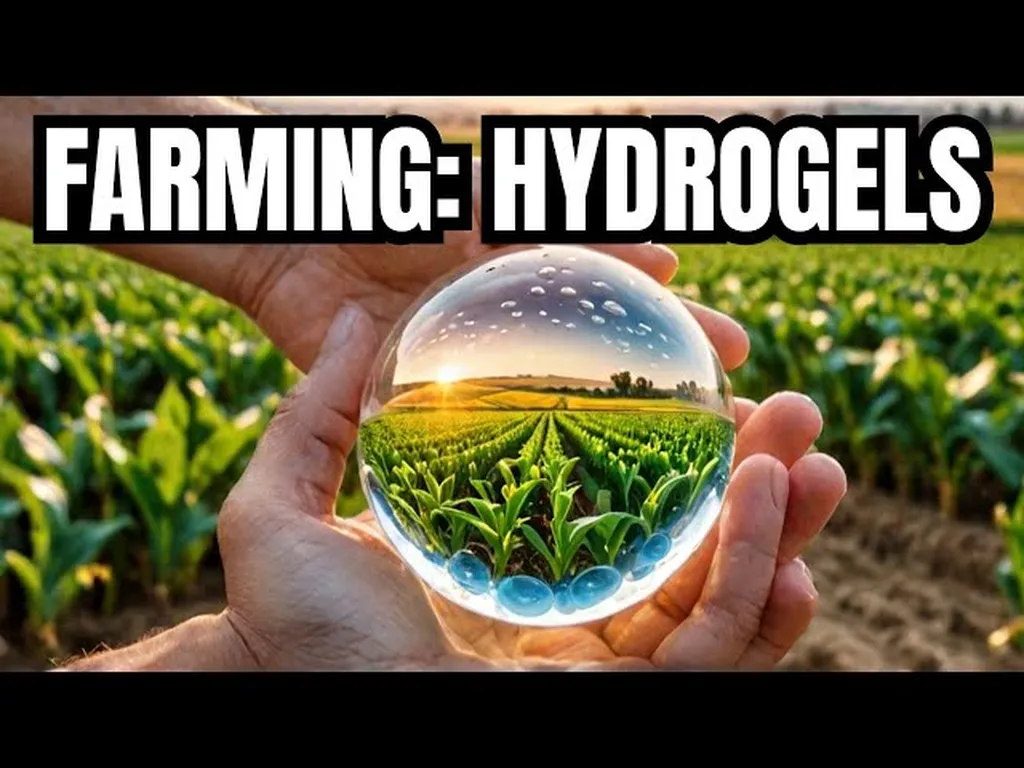In the face of escalating climate change and water scarcity, modern agriculture is grappling with formidable challenges that threaten global food security. A groundbreaking review published in ‘Desalination and Water Treatment’ (which translates to ‘Treatment and Purification of Water’) offers a glimmer of hope, exploring the transformative potential of multifunctional hydrogel systems in revolutionizing farming practices. Led by Gamareldawla H.D. Agbna from the UNESCO-Chair in Desalination and Water Treatment at Qatar University, the research delves into the multifaceted applications of hydrogels, highlighting their role in enhancing water retention, improving soil health, and bolstering crop resilience.
Hydrogels, a class of smart materials known for their ability to absorb and retain large amounts of water, are emerging as a game-changer in agriculture. These versatile systems can be engineered to deliver nutrients directly to plants, reducing waste and improving efficiency. “Hydrogels can act like a sponge in the soil, holding water and nutrients until the plant needs them,” explains Agbna. “This not only conserves resources but also enhances plant growth and resilience, particularly in arid and semi-arid regions.”
The review underscores the interdisciplinary nature of hydrogel development, drawing on advancements in materials science, agronomy, environmental science, and climate adaptation. By integrating these diverse fields, researchers are creating hydrogels tailored to specific agricultural needs, from improving soil structure to mitigating the impacts of drought and salinity.
One of the most compelling aspects of this research is its alignment with the United Nations Sustainable Development Goals (SDGs). Hydrogels contribute to SDG 2 (Zero Hunger) by enhancing food security, SDG 6 (Clean Water and Sanitation) through efficient water use, and SDG 13 (Climate Action) by promoting climate-resilient agriculture. “The potential of hydrogels to address multiple SDGs simultaneously makes them a powerful tool in our quest for sustainable agriculture,” notes Agbna.
However, the path to widespread adoption is not without challenges. High production costs, scalability issues, market acceptance, and regulatory barriers are significant hurdles that need to be overcome. Agbna emphasizes the importance of ongoing advancements in biodegradable and eco-friendly hydrogels, coupled with innovative production methods and supportive policy frameworks, in paving the way for commercialization.
The commercial implications for the energy sector are also noteworthy. As agriculture accounts for a significant portion of global water use, the efficient use of water through hydrogel technology can free up resources for other sectors, including energy production. This synergy between agriculture and energy can contribute to a more sustainable and resilient future.
Looking ahead, the research suggests that fostering collaboration between researchers, industry stakeholders, and policymakers is crucial. By working together, they can harness the full potential of hydrogel technology to create a more sustainable and resilient agricultural future. As Agbna aptly puts it, “Hydrogels are not just a technological innovation; they are a catalyst for change in how we approach agriculture and food security.”
In conclusion, the review published in ‘Desalination and Water Treatment’ offers a compelling vision of how multifunctional hydrogel systems can transform modern agriculture. By addressing critical challenges such as water scarcity, soil degradation, and climate change, hydrogels hold the promise of a more sustainable and food-secure future. The journey is fraught with challenges, but with continued innovation and collaboration, the potential is immense.

